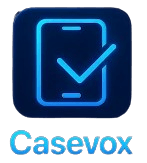Fidelity Properties, Inc/Fidelity National Collections Debt Collection Harassment?
Are you tired of Fidelity Properties/Fidelity National Collections Debt Collection Harassment? One thing you must always remember is that a debt collector has just one aim and it is to collect money from you. They try to achieve this aim by any means possible even if it brings discomfort to you. When you get into tough financial situations, you may fall into debt and start receiving calls from debt collectors. You are not alone in this. Millions of Americans have experienced it and some are still experiencing it.
Debt collectors’ calls may catch you off guard and you may begin to panic. Try to get a hold of yourself and be calm. With the right knowledge, you will handle the situation well. One vital thing to do during Fidelity Properties/Fidelity National Collections debt collection calls is to listen more than you speak. Try to get information from the debt collector about who they are and what agency they represent. Do not give them your personal financial details. Be cautious about paying any amount to a debt collector before you verify the debt and fully understand your rights.
Introduction to Debt Collection
Debt collection is the process by which a debt collector or collection agency seeks to recover money owed by debtors who have fallen behind on their payments. Companies like Fidelity National Collections, also known as Fidelity Properties, are often hired by original creditors to collect outstanding debts on their behalf. Debt collectors may reach out to consumers through phone calls, letters, or even emails in an effort to recover the money owed.
It’s important for consumers to be aware that while debt collectors and collection agencies have the right to attempt to collect debts, there are strict federal laws in place to protect you from harassment and unfair practices. The Fair Debt Collection Practices Act (FDCPA) is a federal law that sets clear guidelines for how debt collectors must conduct themselves. This law prohibits abusive, deceptive, or unfair collection tactics, such as repeated phone calls intended to annoy, threats, or false statements about the debt.
Understanding the debt collection process and your rights under the law is crucial. If you receive communication from a debt collector like Fidelity National Collections, take the time to verify the debt and know how to respond. Being informed can help you protect yourself from harassment, avoid falling victim to scams, and ensure that your rights as a consumer are upheld throughout the collection process.
What to do when a debt collector calls you
You are expected to meet up the deadline for payments. But many times, people are unable to pay before the stipulated time. This may eventually lead to Fidelity Properties/Fidelity National Collections debt collection.
Oftentimes, debt collector’s calls are unexpected so you may need to ask the collector to call back at a later moment when you’re less busy, calm, and in the right place to answer the call. Ahead of the call, you should have your pen to note down any questions or concerns you may have. The information written down would come in handy if you have to recall a conversation or appear in court. The basic knowledge collected could serve as an aid when you are writing a cease-and-desist letter.
It is also necessary to ask for the debt details so as not to be burdened with a debt that’s not yours to pay. Ask enough questions about the debt and the original creditor.
Record where necessary. As a best practice, keep detailed records of all communications with debt collectors and seek legal counsel if needed.
If the debt collector begins to curse or use profane and obscene words on you, recording the conversation may become necessary.
Validating your debt with Fidelity Properties, Inc/Fidelity National Collections
To ensure that you do not give Fidelity Properties/Fidelity National Collections more than you owe, it is important to validate your debt. This is also important because the person calling you may be a scammer pretending to use a Fidelity Properties/Fidelity National Collections phone number. Asking for debt validation will not only prove that the debt is yours, but also that the person(s) you are in communication with is indeed a representative of Fidelity Properties/Fidelity National Collections collection agency.
Even if the call is legitimate and you are indeed speaking to a representative of Fidelity Properties/Fidelity National Collections, it is important that you know exactly how much you owe and confirm, beyond the shadow of any doubt, that the debt belongs to you before you agree to make a payment.
What you may not know is that Fidelity Properties/Fidelity National Collections is legally required to either give you all the basic details you need to know about the debt during their first call with you or to send you a debt validation letter within 5 days of their first contact with you. This document or information should give you a basic idea about the debt, including how much you owe and who you owe it to.
If you still do not recognize the debt that the Fidelity Properties/Fidelity National Collections debt collector claims that you owe, then you are allowed to send them a debt verification request, asking that they provide you with more information.
Fidelity Properties/Fidelity National Collections collections must then prove that the debt is yours by sending you a detailed document containing everything there is to know about the debt. Note that the debt verification request must be set within 30 days of initial contact with Van Huffman, else they may legally assume that the debt is valid and that it is yours.
When does a debt collector go too far?
Some common types of violation by debt collectors include:
- Making harassing phone calls: Some debt collectors make it a point of duty to call debtors many times in one day.
- Failing to introduce themselves on the phone: According to the FDCPA, any debt collector who calls you should tell you their name, address, and entity they represent.
- Use of profane and obscene language: When a debt collector begins to use cuss words on you, that is a cause for concern, and you should ask them to stop.
- Calling a Consumer’s workplace knowing that they shouldn’t: If you have told a debt collector that you can’t answer their phone calls in your workplace, they should not call you at work. Doing this is violating your rights.
- Lying about the debt: Some debt collectors use deceitful means to try to get you to pay a debt. If a debt collector lies about a debt or says they can send you to jail, they have violated your rights.
- Ignoring a cease-and-desist letter: You have the right to write to a collection agency, asking them not to contact you via phone calls anymore. This is called a cease-and-desist letter. After this letter, if they still call you, that is a violation.
- Ignoring a request for a debt validation letter: When you ask a debt collector to send you proof of your debt, they should send it.
- Calling debtor’s friends and family.
- Ignoring a cease-and-desist letter: Debt collectors are allowed to call people connected to you if they do not have direct access to you, but they should never discuss your debt with them.
If your rights are being violated by Fidelity Properties/Fidelity National Collections, you can ask them to stop because you are aware of your rights. Call us now at (877-700-5790) if your debt collection agency is harassing you over your unpaid debts.
Federal Law Protects You from Debt Harassment by Fidelity Properties/Fidelity National Collections
In 1978, Congress passed a set of rules known as The Fair Debt Collection Practices Act (FDCPA), forbidding debt collectors from harassing or abusing debtors whose delinquent debts they were collecting on. The law not only put consumer-friendly restrictions on third-party debt collectors but also made provisions for consumers to recover damages and be duly compensated for the violation of their rights and the FDCPA laws by debt collectors like Fidelity Properties/Fidelity National Collections.
While the enactment of these laws did not mean that unfair debt collection practices came to an abrupt end, it certainly did a lot to improve the conditions under which a debt is collected especially for the consumer. Unfortunately, many debt collectors still fail to uphold this law. It is for this reason that the FDCPA gives consumers a way to fight back against unscrupulous debt collectors and their unethical collection practices.
What are Your Rights under the FDCPA?
The more you understand your rights, the better equipped you will be to respond appropriately to debt collectors and debt buyers who use harassment as a collection tactic. The following practices on the part of debt collectors against the law:
• Repeated phone calls intended to annoy or abuse the consumer • Phone calls between 9 p.m. and 8 a.m. or at any other inconvenient time of day • The use of obscene or profane language in communications with a consumer • Issuing threats of violence or bodily harm • Placing anonymous debt collection calls to the residences or places of employment of consumers. • Phone calls made to your work especially if your employer objects or if you have expressly requested that they stop contacting you at your place of employment
Furthermore, the FDCPA also prohibits debt collectors from revealing your name publicly as a delinquent debtor and from using false, deceptive, or misleading practices (such as lying about or misrepresenting the amount that you owe all in a bid to turn a profit) during the collection of the debt. Good examples of false, deceptive, or misleading practices include: • Misstating the amount, you owe • Falsely claiming that they are an attorney or police officer • Threatening to have you arrested or jailed • Making threats that they are not legally allowed to carry out • Making threats they do not intend to carry out
When you’re facing collection calls or if you are in trouble with debt collectors, it is in your best interest to keep a record of all the communication that has transpired between you and them. Your log should include information like: • The date and time of the calls you received • The number the debt collector called you at if you have more than one line • The number the debt collector called from • How the debt collector identified himself or herself • A brief summary of the conversation, including any foul language, threats, or other possible violations of your FDCPA rights that occurred along the course of the conversation.
This information will help your consumer protection attorney build an iron-clad case on your behalf if legal action becomes necessary.
Most importantly, if you do feel that a debt collection agency is harassing you, feel free to reach out to the Federal Trade Commission and the . These agencies work together to bring unethical collection agencies that engage in abusive or deceptive collection tactics to justice.
Do not allow the shame or embarrassment that you may feel over your inability to repay the debt that you owe to Fidelity Properties/Fidelity National Collections to prevent you from taking action in the face of debt collection harassment. Even if you legitimately owe money, collection agencies are not allowed to call you several times a day, harass your family members or threaten to have you arrested when they are not legally allowed to do so.
We know that having a debt collector call you can be a scary thing, but we also want you to know that you are not alone in your case of debt collection harassment, thus, you don’t have to feel ashamed about it.
When it comes down to the debt collection process, ignoring the calls you receive from Fidelity Properties/Fidelity National Collections is probably the worst thing to do. You should understand that speaking to them isn’t an admission of guilt and ignoring their calls can have disastrous consequences. If you feel too unsettled, then you don’t have to speak with a collection agency immediately. If you pick up the phone and aren’t yet prepared to have a conversation about your unpaid debt, ask for the collection agency to call you back at a later time that is more convenient. This allows you to plan out what you’d like to say more carefully when the debt collector eventually calls back.
Who are Fidelity Properties/Fidelity National Collections?
Fidelity National Collections is a company with a long-standing presence in the debt collection industry. According to their website, the mission of Fidelity National Collections is to provide unequaled service in the recovery of assets entrusted to us, in a timely and cost-effective manner.
- Founded in October 1966
- 50 plus years as specialists in Healthcare services
The company attributes its success to dedicated employees and uniquely qualified managers who utilize advanced technology. Fidelity National Collections is known for achieving high recovery rates and providing unprecedented recoveries for its clients. Fidelity succeeds in the industry due to its skilled staff, technology, and experience. The company has built a strong reputation for providing high-quality service and successful asset recovery.
Contact Information
Address:
885 S Sawburg Ave Ste 103
Alliance, OH 44601-5905
Phone: (330) 821-9700
For Consumers: Call (800) 860-9701
Is Fidelity Properties/Fidelity National Collections a scam?
According to the Better Business Bureau website, Fidelity Properties/Fidelity National Collections have been in business since 1965. There have been 25 customer complaints closed in the last 3 years and 7 customer complaints closed in the last 12 months. Read more about it here: Fidelity Properties/Fidelity National CollectionsBetter Business Bureau. For more detailed information, visit the Better Business Bureau page dedicated to Fidelity Properties/Fidelity National Collections.
Can I sue Fidelity Properties/Fidelity National Collections for harassment?
Before you decide to take legal action and sue Fidelity Properties/Fidelity National Collections collection agency for harassment, you could try an easier option first, like filing a complaint about the harassing methods which Fidelity Properties/Fidelity National Collections uses to collect debts to the Federal Trade Commission (FTC), the (CFPB) and your state’s attorney general’s office.
If you are still unsatisfied with Fidelity Properties/Fidelity National Collections and the manner in which they communicate with you, then you may proceed and choose to sue them. If you suffered any inconveniences (the legal term for which is damages) as a result of the harassment you have faced from Fidelity Properties/Fidelity National Collections, then one major advantage of suing them to court will be the amount of money you will recover in damages. Even if you can’t prove actual damages, it is standard procedure to be awarded up to $1,000 in statutory damages if you can prove a valid case of debt collection harassment against Fidelity Properties/Fidelity National Collections.
It is worthy to note that it is not only you who retains the right to sue Fidelity Properties/Fidelity National Collections; they can sue you over the non-repayment of your debt. Even though you may have sent them a letter to cease all communication with you, it does not automatically make the debt go away. The most important thing to remember if you get sued by Fidelity Properties/Fidelity National Collections is to never ignore a lawsuit for whatever reason. This will lead to a default judgment being entered against you, and you will ultimately lose the chance to plead your case.
If you intend on suing Fidelity Properties/Fidelity National Collections for the harassment you have faced at their hands, then it is imperative that you keep a detailed log of their violations of the FDCPA. Your log should include the date and time of the violation, as well as a summary of what took place when you were contacted by a collection agency and how they violated the FDCPA. Check with your state laws and record phone conversations you have with Fidelity Properties/Fidelity National Collections to present as evidence in court.
Along with this, save any harassing or threatening messages that Fidelity Properties/Fidelity National Collections have left on your voicemail. You may need to get their permission first or to inform them that you intend to use the recordings as a ground to take legal action against them.
To avoid a legal proceeding, you can try to send your complaint directly to your original creditor or to Fidelity Properties/Fidelity National Collections collection agency. They may be willing to negotiate a settlement once they know that you intend on suing them to court.
If you are able to get Fidelity Properties/Fidelity National Collections to agree to a settlement, be sure to get the agreement in writing and clearly specify the terms of the contract, including the exact amount that is to be paid. It may also be helpful to ask them to remove the bill from your credit history once your debt is paid so that it no longer affects your credit score.
Even if you get a court summons for a debt you don’t think belongs to you, don’t ignore it, as doing so could have some serious consequences.
Getting a Free Case Review
If you believe you are experiencing harassment or unfair treatment from a debt collector or collection agency, such as Fidelity Properties or Fidelity National Collections, you have the right to seek help. One of the most effective ways to protect yourself is by getting a free case review from a consumer rights law firm or advocacy organization.
A free case review allows you to have your situation evaluated by professionals who are knowledgeable about federal law and the rights of consumers. During this review, experts will assess whether the debt collector’s actions may have violated the Fair Debt Collection Practices Act (FDCPA) or other relevant laws. This process can help you understand your options, determine if you have grounds for a complaint or lawsuit, and receive guidance on how to proceed.
Taking advantage of a free case review is a cost-effective way to ensure your rights are protected and to get the support you need to address debt collection issues. If you are receiving repeated phone calls, threats, or suspect that a collection agency is violating your rights, don’t hesitate to reach out for assistance. Many law firms and consumer protection agencies offer this service with no obligation, giving you peace of mind and a clear path forward in dealing with debt collectors.
CONSUMER RIGHTS LAW FIRM, PLLC
Consumer Rights Law Firm, PLLC is a law firm that specializes in helping clients who are facing harassment from debt collectors. If you suspect that your debt collection rights are being trampled upon, contact our office to begin the process to stop the harassment you may currently be receiving from Fidelity Properties/Fidelity National Collections. Our office has been assisting consumers since 2010, and we have an A+ rating with the Better Business Bureau.
Call us at (877)700-5790 for immediate assistance.
Check out the links below for more information:







